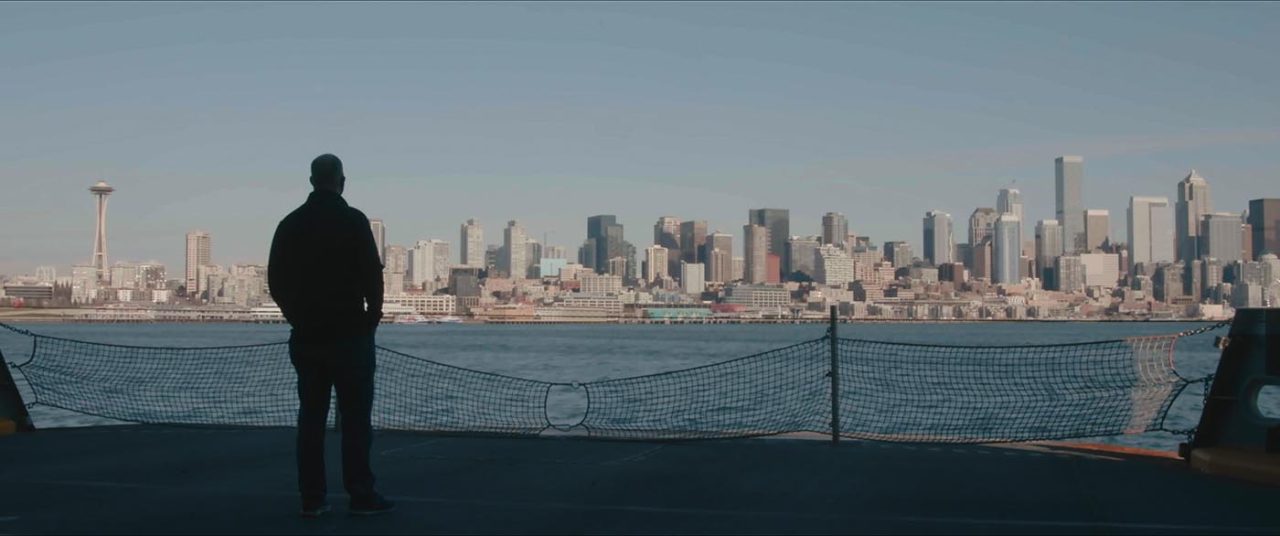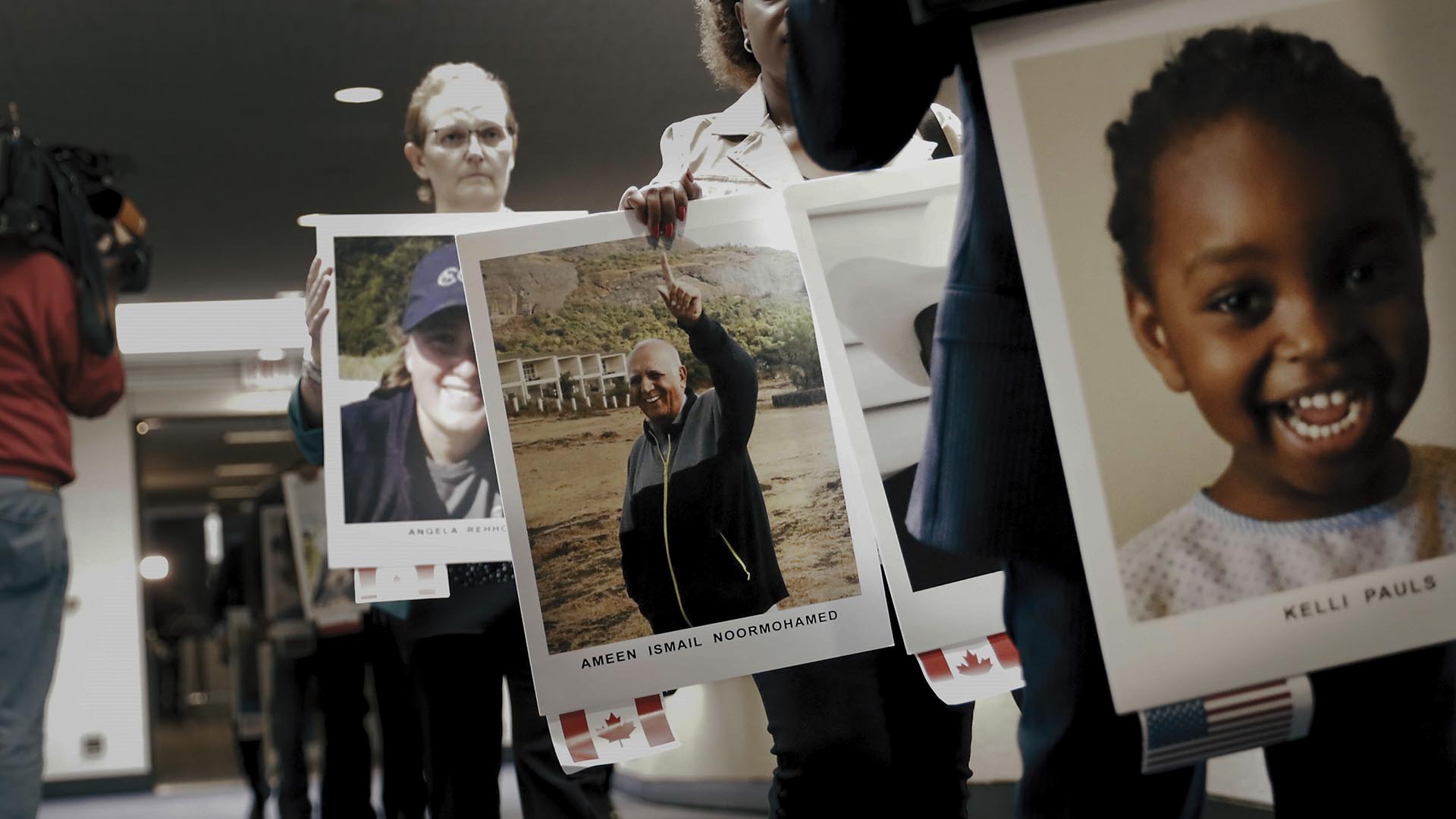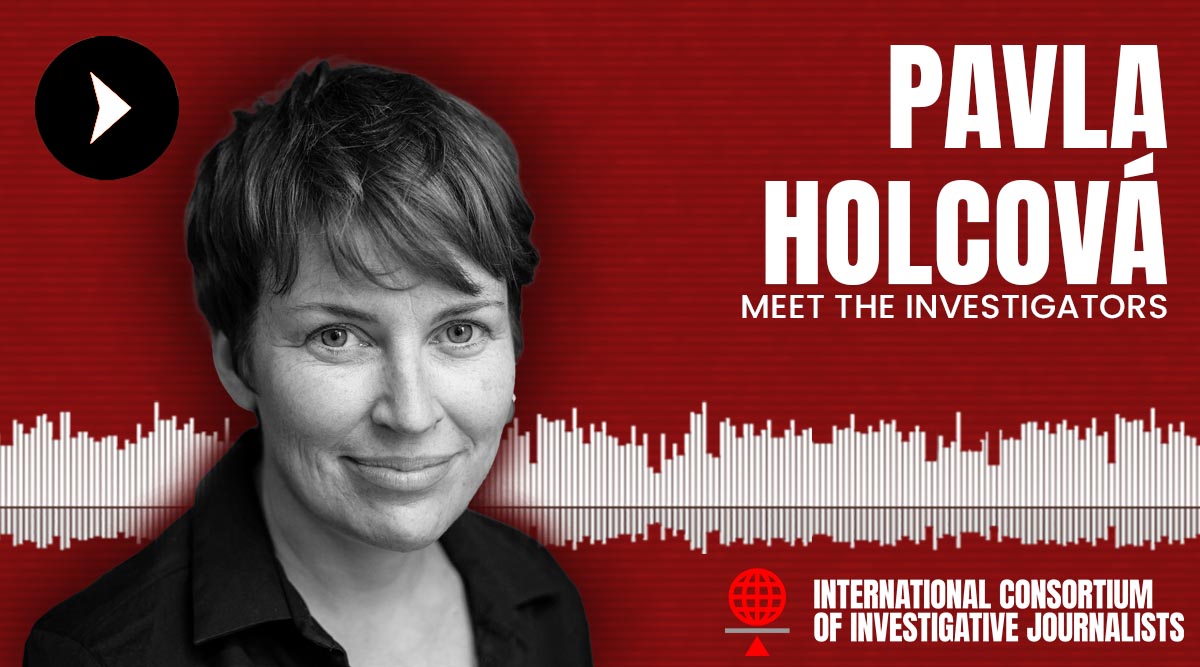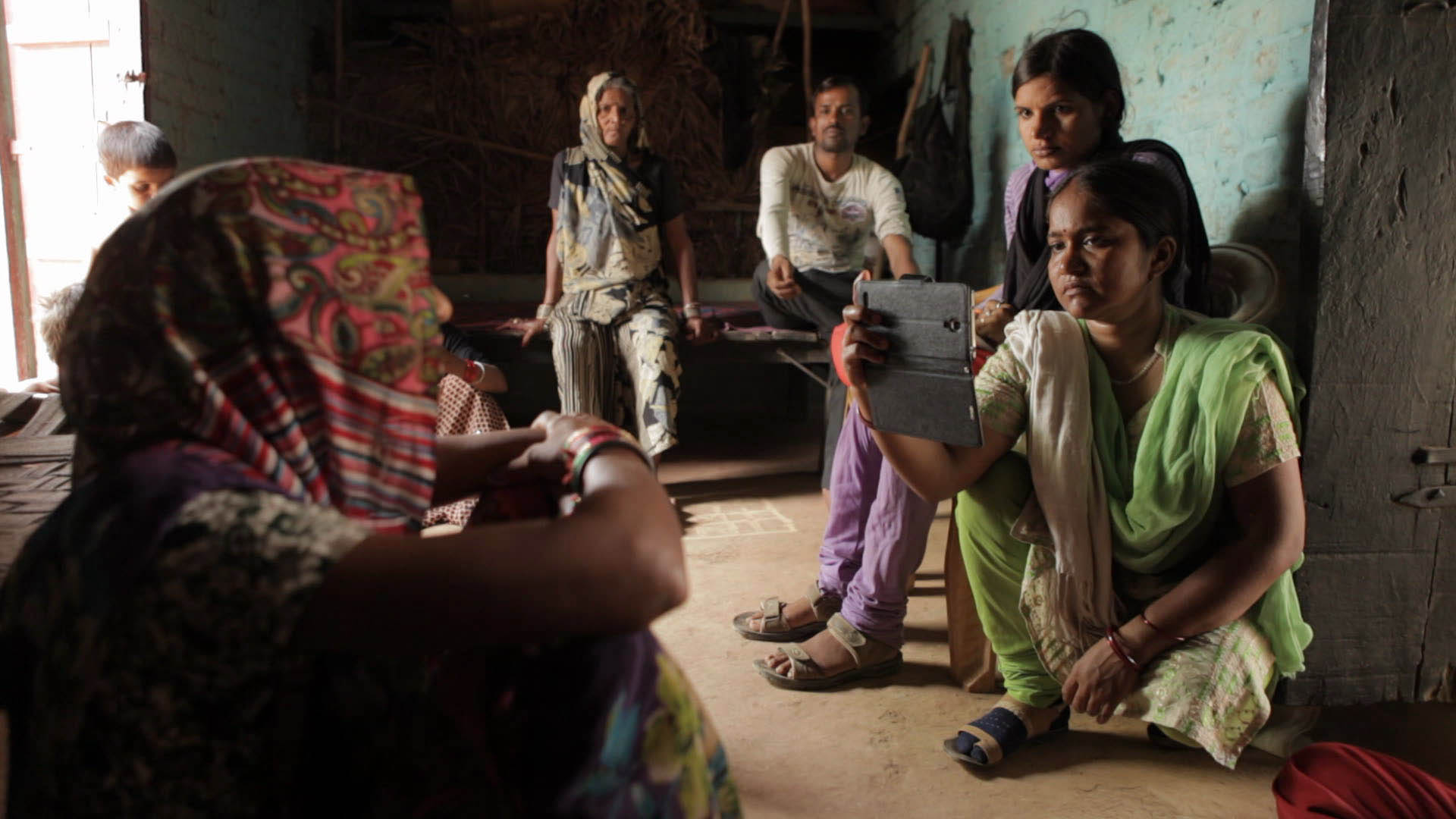In October 2018, a Boeing 737 MAX carrying more than 180 passengers and crew members crashed in Indonesia, killing everyone on board. Five months later another Boeing 737 MAX went down in Ethiopia with more than 150 people.
Former Boeing manager Ed Pierson rang alarm bells internally at the company before the planes crashed, highlighting major problems at the 737 factory with overworked staff operating under relentless pressure. After the back-to-back tragedies, he decided to go public as a whistleblower, and testified to U.S. Congress about the company’s failings as well as the failures of aviation authorities.
Pierson, whose story has since been featured in the documentary film Flight/Risk, will discuss his experiences as a whistleblower at this year’s Double Exposure Investigative Film Festival and Symposium, alongside filmmaker Karim Amer, lawyer Mary Inman and whistleblower advocate Amber Scorah. Ahead of the panel, ICIJ interviewed Pierson about his experiences blowing the whistle at Boeing, taking his story public, and advoacting for better aviation safety.
This interview has been edited for length and clarity.
What was your impression of Boeing when you first joined the company in 2008?
Wow, it’s a bit overwhelming. It’s an incredible company. It’s got so many important projects and programs. In terms of the scope and the depth of the projects, it was incredible. And the people that I worked with were really solid people. Overall, I’d say a vast, vast majority of employees are very dedicated, highly skilled and motivated. So I was thrilled to be hired by Boeing.
It sounds like you were impressed with the company when you first joined. When did that impression start changing?
Unfortunately, it happened rather quickly. My first position at Boeing was as a program management specialist. I was there to help them get software development work done to support the 787 program, and it didn’t take very long to realize that leadership was getting information that was not correct about the progress of the software. And so I partnered up with some other employees who had a lot more experience than me, which was virtually everyone, and we did an analysis and presented it to the leadership and explained to them that, although they’d been told that the software development was far along, it really wasn’t. So that was a shocking first sense of maybe something’s not right, the fact that employees were misrepresenting the truth.
I left that job and took a position in Boeing’s flight testing evaluation organization, where all the planes are tested. Then I took a position at the factory as a senior manager in the production system support organization. It was a gigantic facility with thousands of employees, very choreographed. I had a great group of people that I worked with, and things were good until late 2017.
In 2017, Boeing started to bolster the 737 MAX program. Tell me about the conditions in the factory at that time.
As we were beginning to increase the production of the MAX, we started having signs of stress with our supplier team. Other parts of our supply chain started to deteriorate, and we started seeing lots and lots of parts that were not coming to us on time, and that had this horrible cascading effect.
We’re putting out 47 or so airplanes a month, so you can figure it’s a very high-speed type of environment. Every part is critical, but what would happen is a person on first shift, say, wouldn’t have the part to do their job. And so they couldn’t do their work and the person on second shift whose job was based on the first person completing their job, they couldn’t do their job now. And so all this work starts to pile up. And yet the planes are still being pushed from position to position to position, and workers are starting to be stretched, and quality controls are starting to be really stressed. The solution that I guess our executives thought was the right solution was to work people hard and much, much longer overtime. There were fatigue issues. And then people were starting to see our performance metrics in the factory deteriorate. I started seeing stuff that really concerned me, and that’s when I tried to get the general manager to shut the factory down.
I told him that I thought it was unsafe. We need to go back and ask our quality people to look at our quality reports to determine if maybe we had inadvertently left the hazard in a plane. We need to review the fact that we had employees working ridiculous hours. I wish I had done a better job, to be honest.
I remember leaving my last day. One of my colleagues, a friend of mine, walked me out to my car. And I remember telling her that I felt like I was abandoning the Titanic.
Boeing management didn’t respond to your concerns the way you had hoped. How did the Lion Air and Ethiopian Airlines crashes push you to go public and blow the whistle on the conditions at the factory?
The Lion Air accident happened. And as soon as that happened, I got a sick feeling in my stomach because [the crash happened in] nice weather. There were reports that maybe the pilots had made a terrible mistake, or maybe it was a terrorist incident. There were a lot of questions. And I just had that sense of like, maybe that was a hazard that had appeared from the factory. And then what happened was the preliminary report came out 30 days later, and I read it top to bottom, and as I go through the report, there’s no mention at all about the factory or production or any of those. So that got me really uncomfortable. Like, the investigators aren’t looking at this. I made a bunch of calls first in the communications office because I was trying to get to talk to whoever was in charge of helping the investigation. And I wasn’t getting anywhere with the communications people. And then eventually I wrote to the CEO. I wrote to the board of directors and the CEO, and I told the general counsel, you need to shut the factory down, you need to bring in international investigators. They said they were going to look into it, and they didn’t.
After my letter to the board, the Ethiopian accident happened. At that point, I gave up on trying to work through Boeing. I was trying to use the channels that I felt were the right channels that were going to have the best chance of fixing the problem quickly. Then I decided that I had to give up after that second crash. And I started reaching out to the NTSB and the FAA. The FAA really didn’t do much and the NTSB, same thing. Eventually, one of my fellow assistant high school football coaches — I was a high school coach at the time — said, “You need to talk to a whistleblower lawyer.”
Finally, the NTSB agreed to interview me. They said that they were going to look into it, but nothing materialized. And then Congress got wind of all this.
You testified in front of Congress in 2019. That was the first time you spoke out publicly against Boeing. How did it feel going from a private individual to a fairly public figure?
Not something I ever expected to be doing at this point in my life. I really had planned on working another five or seven years at Boeing and working in my community as a coach. That’s really what I wanted to do: spend time with my grandkids, my family. So this whole thing completely diverted that path. And I felt like I had to carry the torch. The investigations were completely fixated on pilot training and MCAS [a flight stabilizing system], which were very important to what happened. But there was no investigation of production, there was no looking into what could have happened. These are two month old and four month old planes that had just come out of a very dangerously unstable factory.
We were thinking the hearing was going to be it. You just can’t put the baton down. You’re like, they’re not looking at this, they’re not investigating it. These problems are going to reoccur.
What’s driving me is I talk to these families who lost loved ones, and I’ve become close with a lot of them. They’re still out there fighting to make improvements in aviation safety, they’re still trying to get to the truth. I’ve got to help them, and I don’t feel that much of a choice.
During this whole ordeal, you were approached about taking part in a documentary about the 737 MAX crashes. How did you react to that request?
They contacted me and said, “Hey, we know you’ve got a lot on your plate, but would you be willing to participate in this?” And I said, “No. That’s not my focus.” We had several discussions and they said, “Look, this team is going to sit in the background. They’re not going to get in the way. And oh, by the way, they’re going to provide something that you don’t have. If they do a documentary, it’s going to apply pressure on Boeing and the FAA and the NTSB, and that’s what you need right now.” And I’m like, “You’re right. I do need that.” That was the whole reason we agreed to the documentary because I saw it as a means to bring attention to the truth and apply pressure to get the changes necessary.
What was it like having cameras following you around?
We had introductions to the team. We thought they were very upstanding guys. When we finally said, “OK, we’ll let them [film] but they have to be in the background,” the next day, they flew from London and New York. And they said, “Hey, can we do some filming now?” We’re like, “What do you mean now?” Like, “We go back to the hotel.” So [my wife] Michelle and I are like two little kids following adults. So we go to the hotel, and we’re sitting on the bed. Michelle and I are filming, and they’re asking us questions. And I think this is weird — I’m just a high school assistant football coach.
This was all happening within days of going out and testifying. So they rode along with us, and they honored their promise the whole time. The hardest part is after we got into the big room [Congressional hearing], I looked off to the left and I saw family members holding signs, and then I thought, this is the right thing to do. But they did a good job, they stood in the background, it didn’t interfere with what was going on, and we became friends with them.

What’s your advice for people who are hesitant about speaking out about problems at their company?
I will tell you that I’m certainly not through it. But my advice is to, first of all, if you’re in any kind of a supervisory leadership position, you really need to pay close attention to what your employees are complaining or talking about because a lot of times they’re right, and it seems cliche, but if you stop that communication because you just are directing and bossing people around, people will stop talking to you. That happens in every possible occupation. And people are pressured. When you feel that pressure, you take shortcuts. When you as a person who’s inside seeing that, obviously you have to try your internal channels first. And if that fails, then I think a couple things you might want to consider. One is you might want to see if you can get some more allies. Then going above with bad news is probably a lot easier than doing it by yourself. And in my case, I didn’t wait for that because I felt like I didn’t have time because I didn’t want to wait weeks to talk to other people. I was thinking I don’t want to pop out another 100 planes.
What advice do you have for reporters or documentarians who work with whistleblowers?
You can imagine I’ve talked to lots of reporters. The reason I talked to them was because I see they’re a vehicle to get to the general public and to get the truth passed out. All the reporters I would say have been very professional, but what I’ve noticed is a lot of them are impatient. And they think they have an idea of what you’re trying to say to them and they have an idea how to write a story. And then when it all comes out, it’s watered down. If I was going to teach a class on investigative journalism from my vantage point, as a whistleblower, I would say, imagine you’re going to take a night class once a week for the next two months. You got to go into the research mode and go like, do I really understand this? Be a student. Expect to get schooled a little bit.
Since the 737 crashes, you’ve been advocating for aviation safety. Talk about what you’re doing now to try to rectify issues in the Boeing factory.
I did my research, and I looked into the accident investigations. It became apparent to me that the [airplane] failed because of production quality issues. And that’s where I’m at now, trying to get authorities to reevaluate this because my fear was that we would only fix MCAS and the pilot training, which reportedly has been fixed. I still have questions about that.
What we’re doing more recently is instilling the same effort to try to give the information to the public. We have a podcast that we’re hoping to start up in October. It’s already on Apple and Spotify, there’s a trailer. It’s called Warning Bells with Ed Pierson. We did our first recording and we’re going to do some more and then hopefully get it started up in October. And the reason it’s called Warning Bells is twofold. When I was trying to get the general manager to stop the factory, my first communication to him, I said, all my internal warning bells are going off. And then the second reason it’s important is because as I’ve talked to people from different industries, I get, “Hey, I had the same warning bells, something going off, that just didn’t seem right,” like a person who’s saying something’s not right, we need to fix it.
The Double Exposure Investigative Film Festival and Symposium runs from October 13 to 17. Hear Ed Pierson and fellow panelists discuss “Whistleblowers and the Creator Economy” on Oct. 13 at 2 p.m. For discounted passes for the symposium or tickets for films, please use ICIJ’s 10% discount code ICIJ22 to purchase tickets on Eventbrite.



